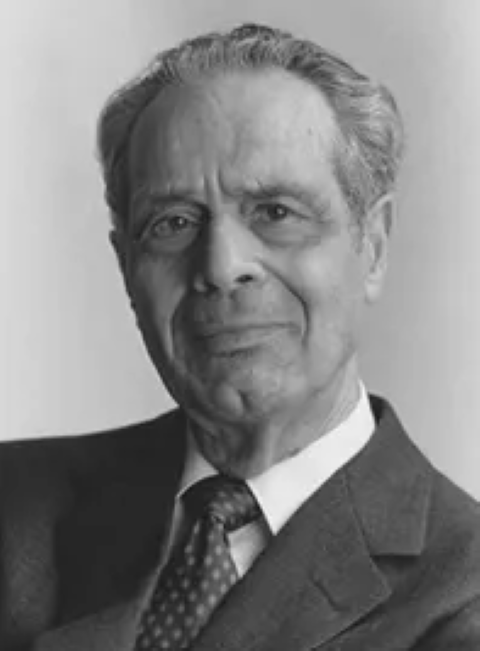Abraham Jacob Briloff
 For over half a century, he was the conscience of the accounting profession, challenging it to raise standards and to meet its obligations to society. Always motivated by the best interests of the accounting profession, he was respected by both supporters and targets of his criticism.
For over half a century, he was the conscience of the accounting profession, challenging it to raise standards and to meet its obligations to society. Always motivated by the best interests of the accounting profession, he was respected by both supporters and targets of his criticism.
Born in New York City in 1917 to parents who had emigrated from Russia, he attended schools in Brooklyn where he pursued courses in business, intent on becoming a Certified Public Accountant. He would have preferred to become a lawyer or doctor but the higher costs of preparing for such a career barred his way. He enrolled in the School of Business and Civic Administration (later renamed Baruch College) at the City College of New York and graduated with a degree in commerce in 1937. At CCNY he studied under Emanuel Saxe, who became his life-long mentor and friend.
Upon graduation, he found that the Great Depression resulted in little demand for new accountants; thus he turned to education and took a position as a “teacher in training” at a New York City high school, where he taught accountancy. During this period, he also worked part-time for the accounting firm of Apfel & Englander (later merged with Seidman & Seidman), and in 1944, he became a partner in the firm. Except for a brief and unhappy sojourn as vice president of a manufacturing firm, he remained with Apfel & Englander until 1951 when he started his own firm with a small group of clients.
In 1944, the year in which he became a partner, he left his high school teaching position and began teaching evening classes in accounting at CCNY. In 1960, while still managing his growing accounting practice, he enrolled in New York University’s doctoral program on a part-time basis. He received his doctorate in 1965. His thesis was titled “The Effectiveness of Accounting Communication,” and two years later it was published as a book under the same title. He became a full-time member of the accountancy faculty at CCNY Downtown in 1965; today this campus is known as Bernard M. Baruch College of the City University of New York.
Prior to earning his doctorate, he had published a significant number of papers, most on estate planning, pension planning, and trusts, and some co-authored with his mentor, Emanuel Saxe. Soon after completing his doctorate, he became deeply concerned that the accounting profession had lost its independence in relationships with clients and, further, that the academic community had forsaken its role in developing accounting standards. Despite deteriorating eye-sight and eventual blindness, he effectively argued these concerns in a stream of articles in the financial press, especially in Barron’s, and in three more books: Unaccountable Accounting (1972), More Debits Than Credits: The Burnt Investor’s Guide to Financial Statement (1976), and The Truth About Corporate Accounting (1981). Over 50 articles, either by him or about him, appeared in Barron’s. Our honoree published over 100 articles in scholarly and professional journals in addition to those in the financial press. He maintained an active teaching and speaking schedule, and on fifteen occasions testified before Congressional committees on matters related to the accounting profession, most notably the Moss Committee in the House and the Metcalf Committee in the Senate during the 1970s. His writing was carefully crafted, clever and often used humor to reinforce this message. It led to many public disputes with accounting firms and business organizations, to several lawsuits initiated by businesses, and to unsuccessful efforts to suppress publication and even presentation of his views.
His many honors and awards commenced during his senior year at CCNY with receiving the George Kent Hinds Medal in Accountancy. He received the Financial Analysts Federation’s Graham and Dodd Award in 1968 and again in 1969, an honorary doctorate from Binghamton University in 1984, the American Accounting Association’s Accounting Exemplar Award in 1995, and many other awards and recognitions from Baruch College and other organizations. His biography, written by the late E. Richard Criscione, was published in 2009 and documented our honoree’s extraordinary life and career.
He died in 2013 at the age of 96. In 2006, he lost his wife of over sixty years, Edith Moss Briloff, to an illness. They had two daughters, Leonore Ann and Alice Myra Ebenstein. Leonore became a partner in her father’s CPA firm and was a co-author on many of his publications. He is the 91st member of The Accounting Hall of Fame, Abraham Jacob Briloff.
 For over half a century, he was the conscience of the accounting profession, challenging it to raise standards and to meet its obligations to society. Always motivated by the best interests of the accounting profession, he was respected by both supporters and targets of his criticism.
For over half a century, he was the conscience of the accounting profession, challenging it to raise standards and to meet its obligations to society. Always motivated by the best interests of the accounting profession, he was respected by both supporters and targets of his criticism.